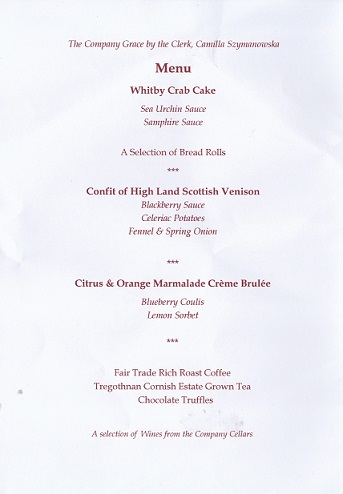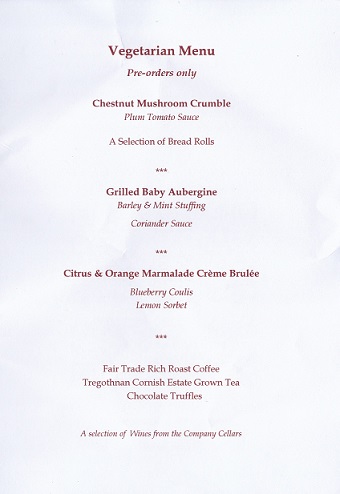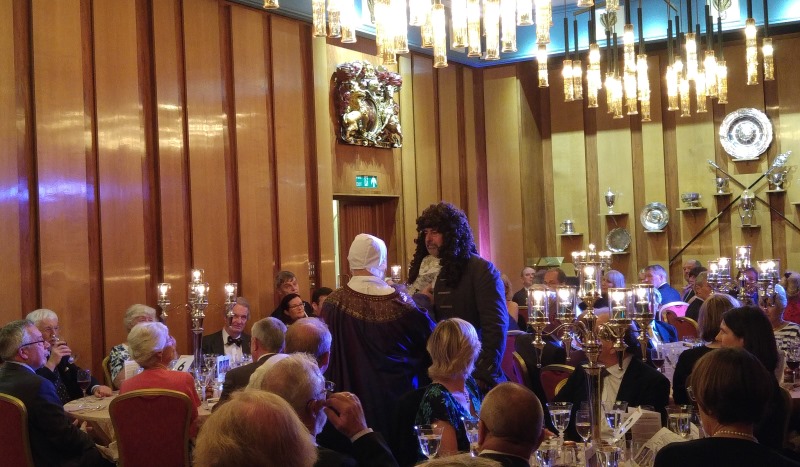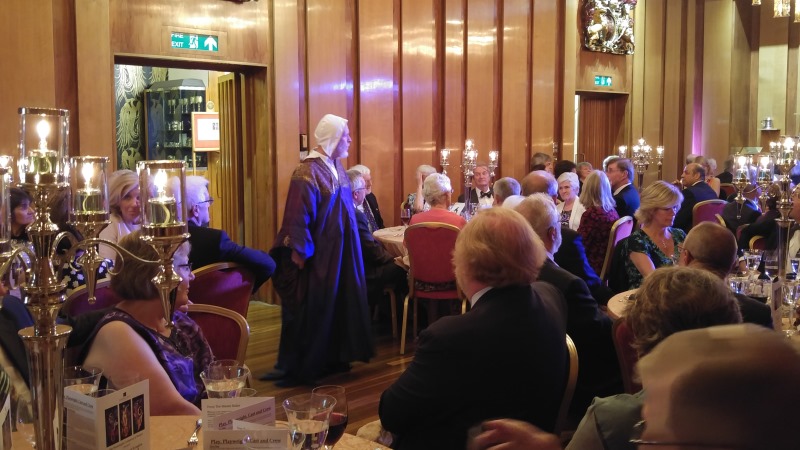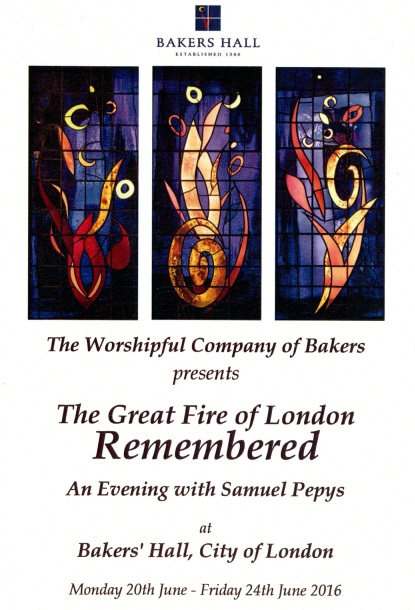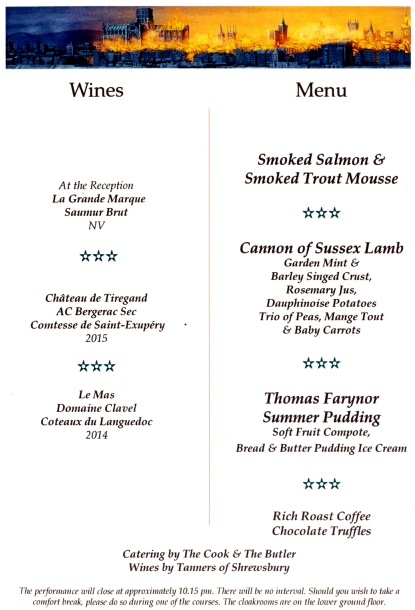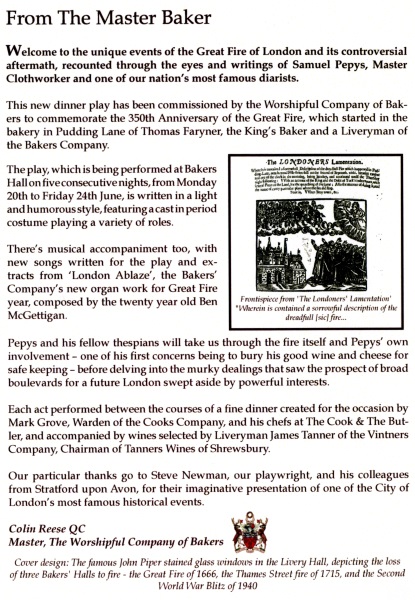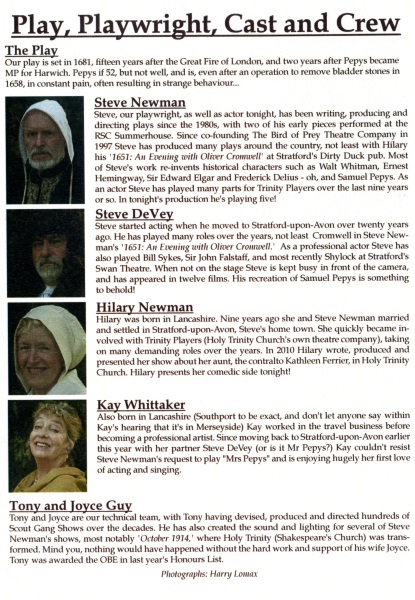
Tel: 020 7620 1818 email: cookandbutler@btconnect.com Company Number 05143672
The Worshipful Company of Bakers
www.bakers.co.uk
April Court Livery Dinner
7th April 2025, Bakers' Hall, London
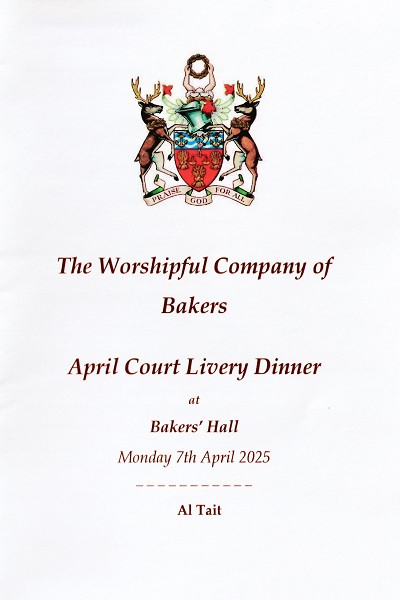
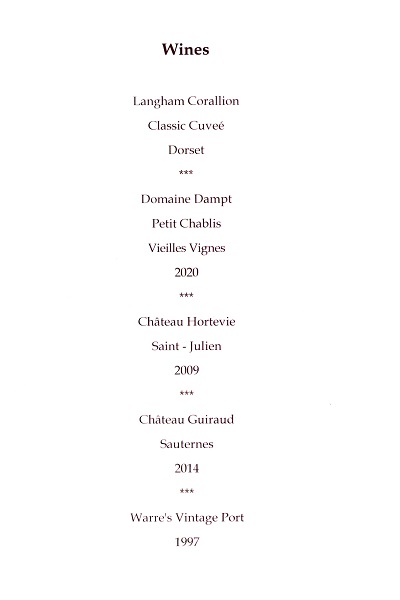
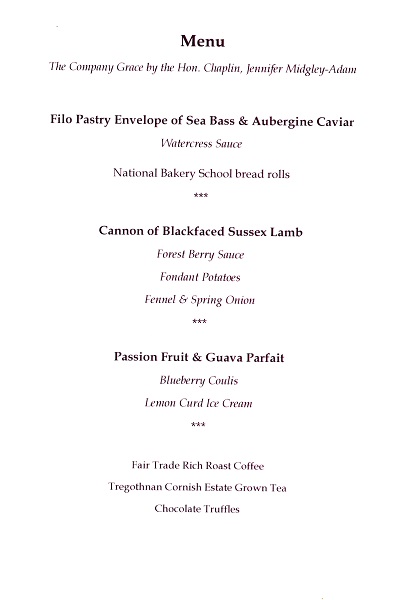
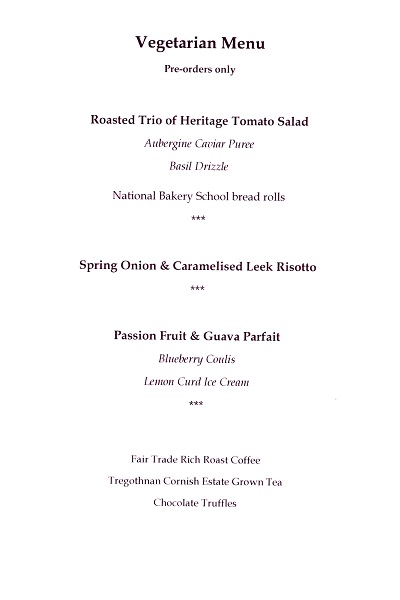
![]()
Christmas Supper
17th December 2024, Bakers' Hall, London

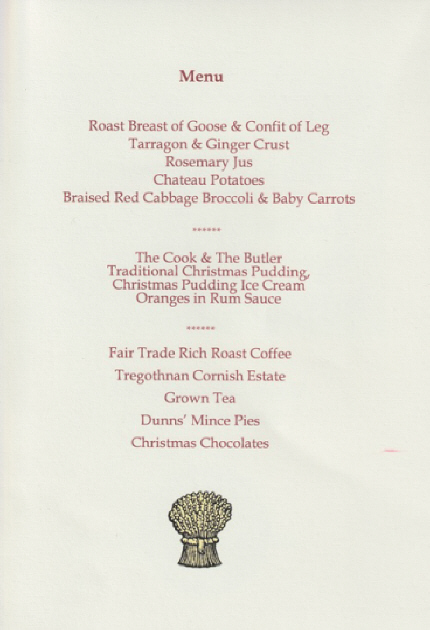
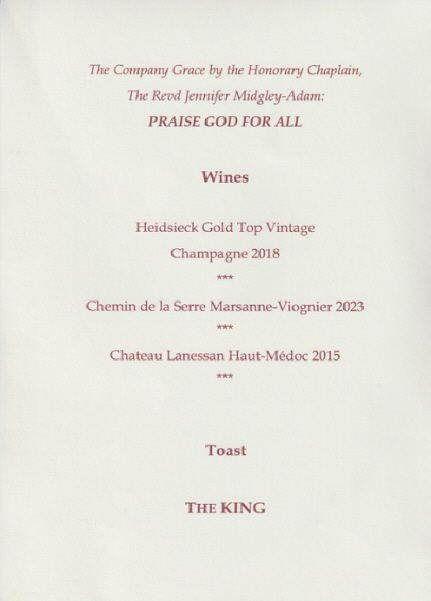
![]()
Luncheon for Masters & Clerks
5th September 2024, Bakers' Hall, London
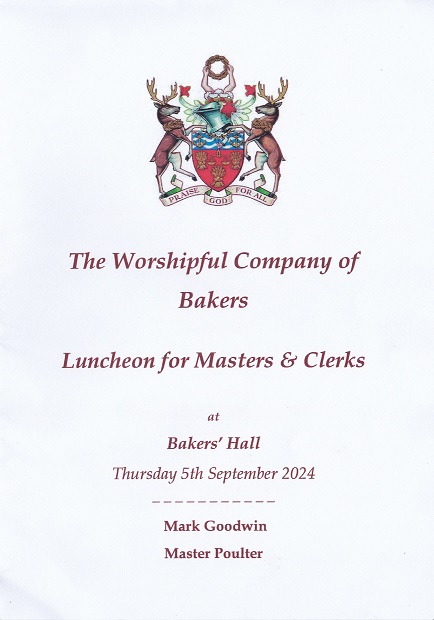
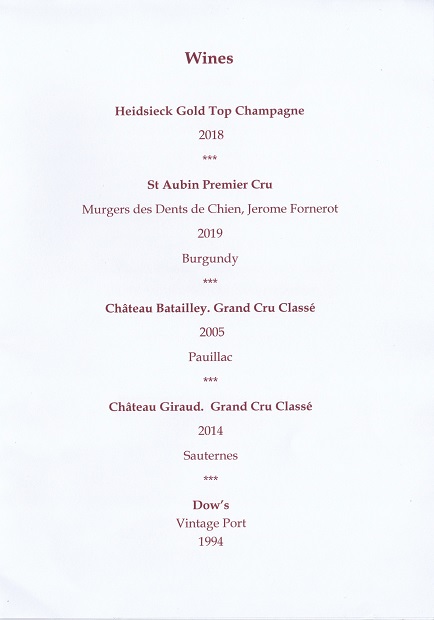
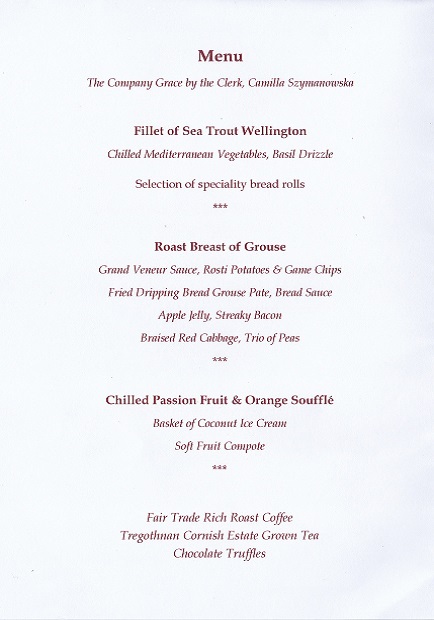
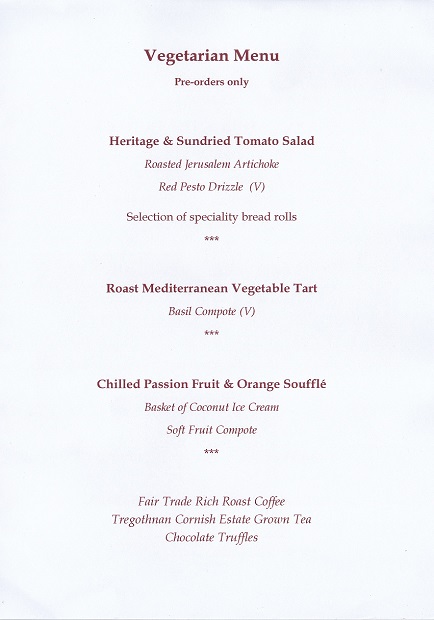
![]()
Court Dinner
5th February 2024, Bakers' Hall, London
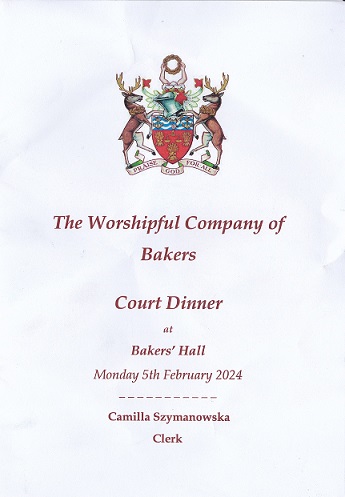
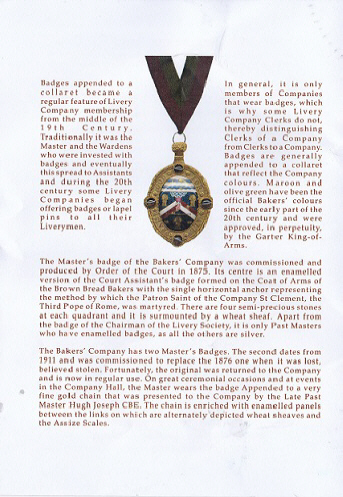
![]()
Court & Livery Dinner
October 2021, Bakers' Hall, London
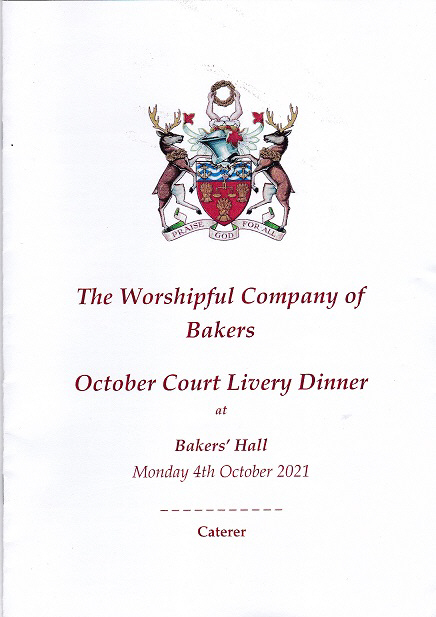
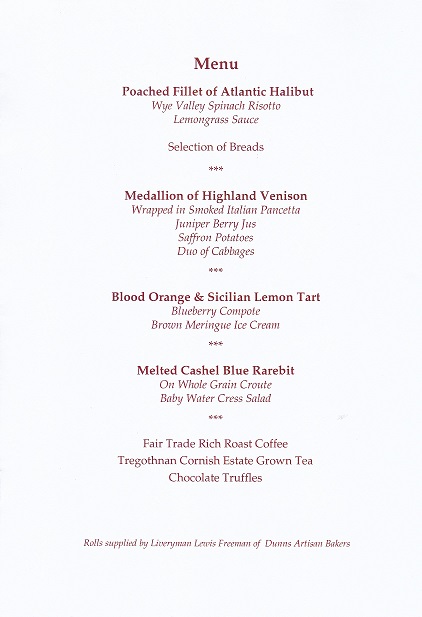
![]()
Masters & Clerks Luncheon
May 2019, Bakers' Hall, London
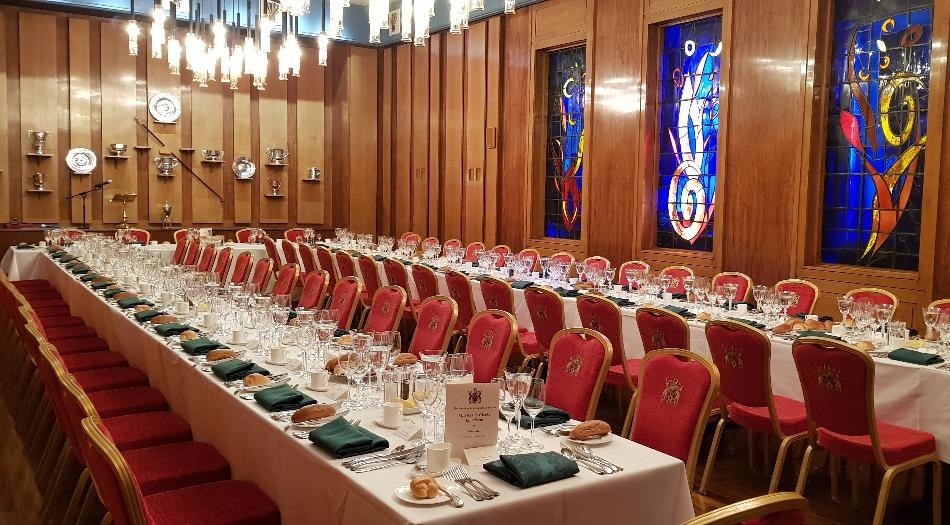
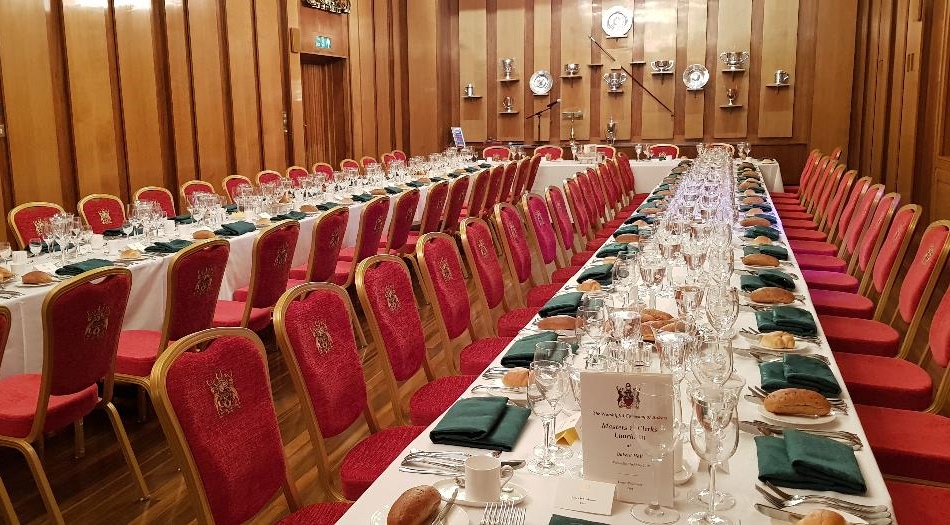


Court & Livery Dinner
April 2018, Bakers' Hall, London
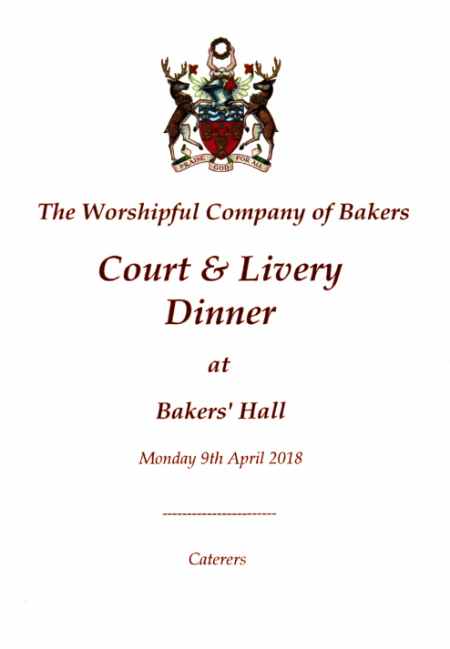
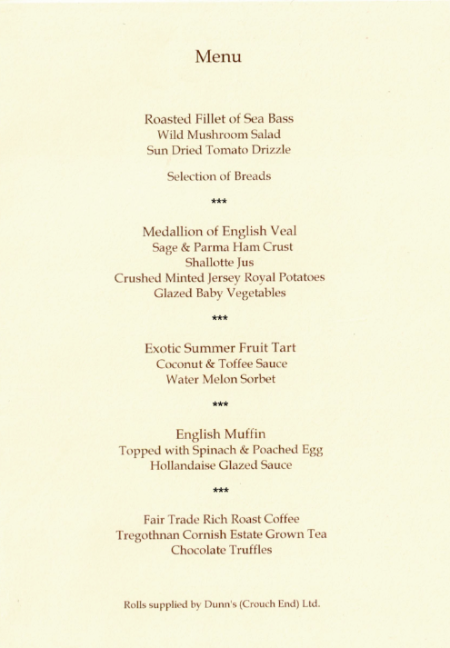

Court Dinner
February 2018, Bakers' Hall, London
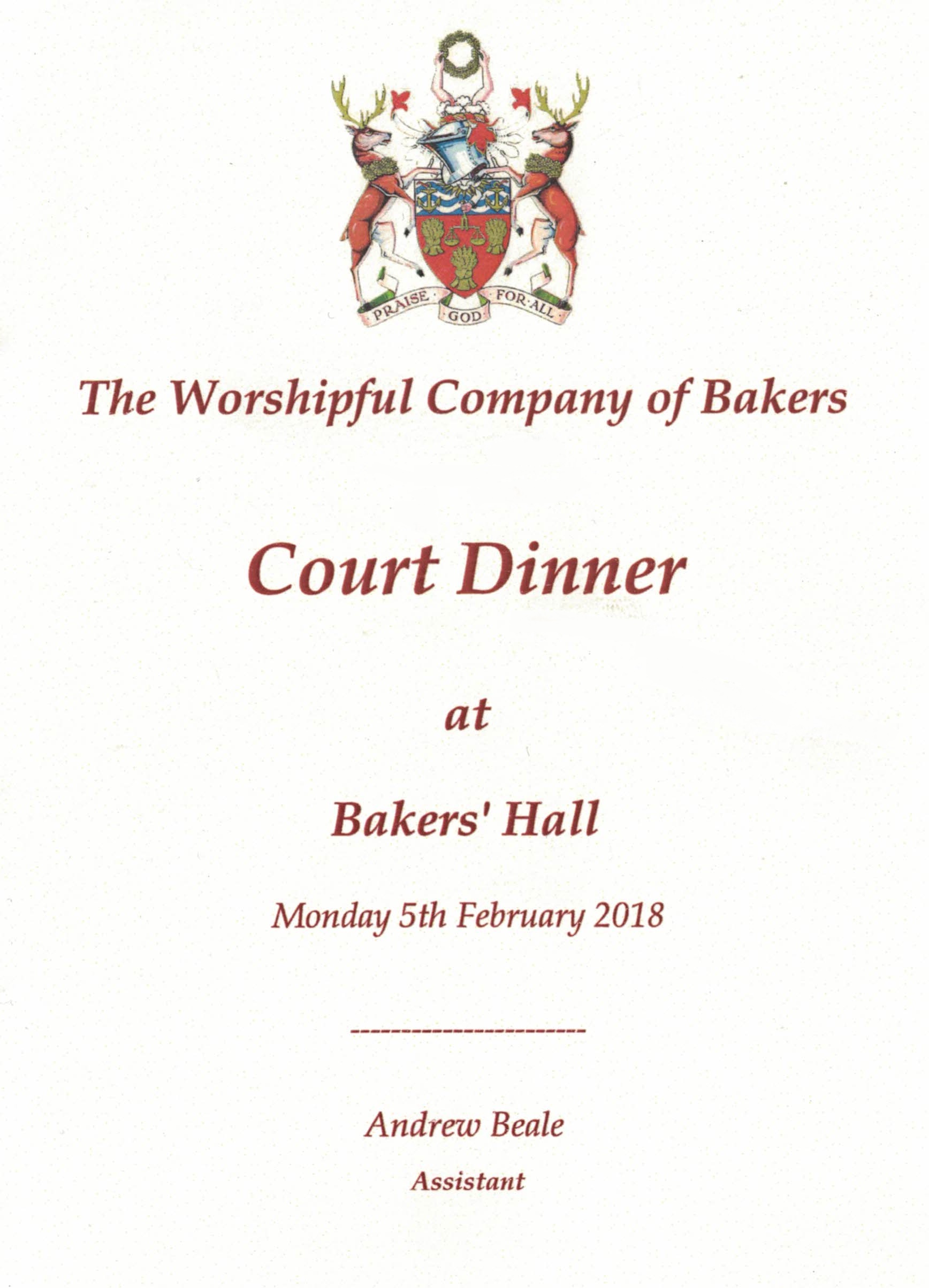
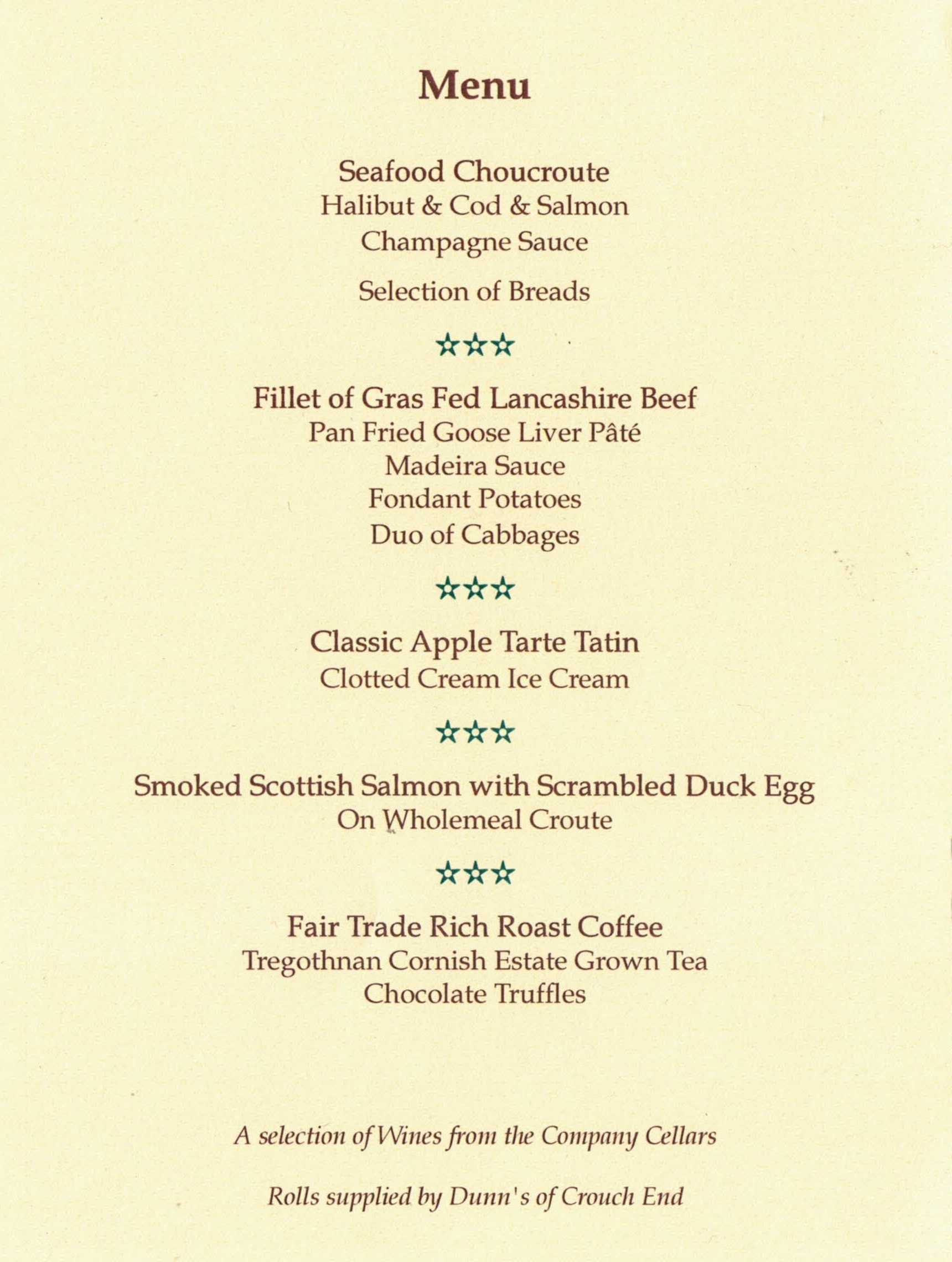

Court & Livery Luncheon
July 2016, Bakers' Hall, London
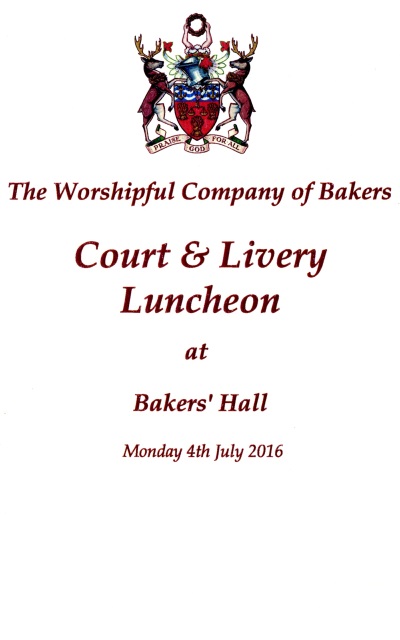
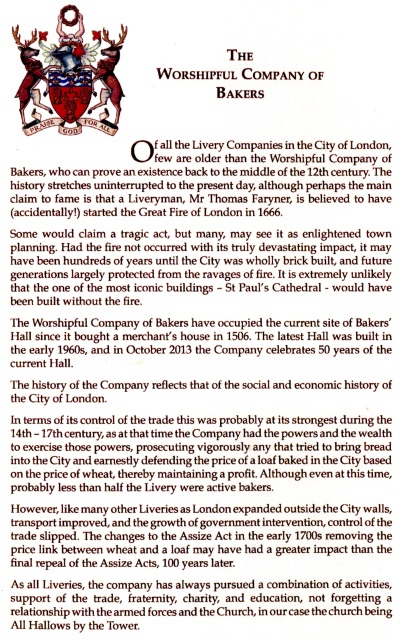
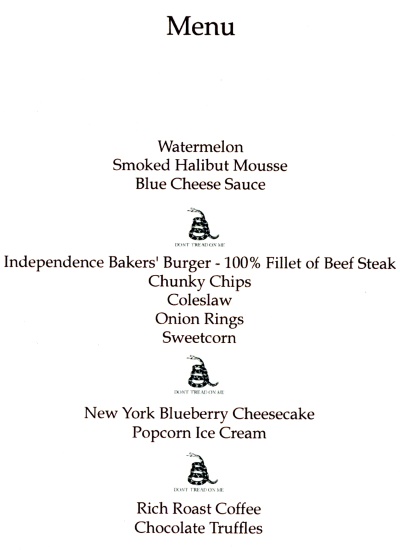
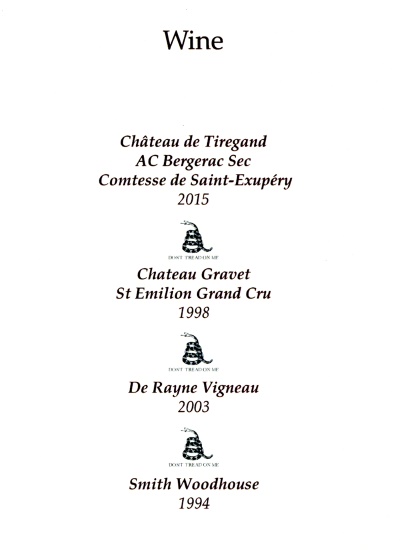

The Great Fire of London Remembered - an Evening with Samuel Pepys
June 2016, Bakers' Hall, London
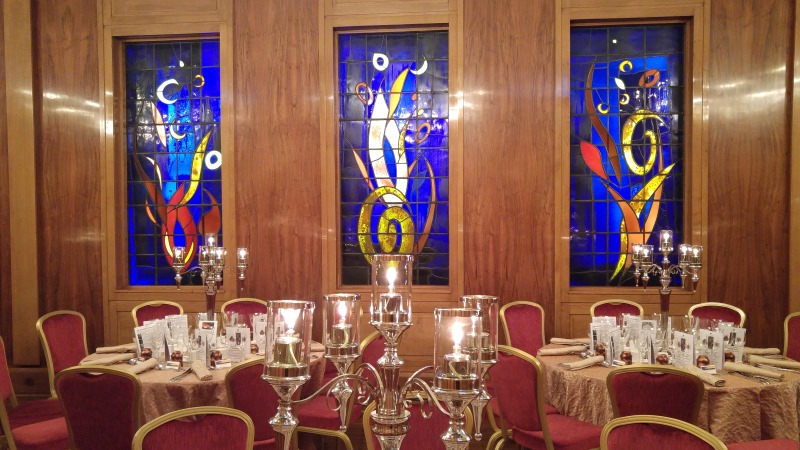
The famous John Piper stained glass windows in the
Livery Hall, depicting the loss of three Bakers' Halls
to fire — the Great Fire of 1666, the Thames Street fire of 1715, and
the Second World War Blitz of 1940.
From The Master Baker
Welcome to the unique events of the Great Fire of
London and its controversial aftermath, recounted through the eyes and
writings of Samuel Pepys, Master Clothworker and one of our nation's
most famous diarists. This new dinner play has been commissioned by the
Worshipful Company of Bakers to commemorate the 350th Anniversary of the
Great Fire, which started in the bakery in Pudding Lane of Thomas
Faryner, the King's Baker and a Liveryman of the Bakers Company.
The play, which is being performed at Bakers Hall on five consecutive
nights, from Monday 20th to Friday 24th June, is written in a light and
humorous style, featuring a cast in period costume playing a variety of
roles.
There's musical accompaniment too, with new songs written for the play
and extracts from 'London Ablaze', the Bakers' Company's new organ work
for Great Fire year, composed by the twenty year old Ben McGettigan.
Pepys and his fellow thespians will take us through the fire itself and
Pepys' own involvement — one of his first concerns being to bury his
good wine and cheese for safe keeping — before delving into the murky
dealings that saw the prospect of broad boulevards for a future London
swept aside by powerful interests.
Each act performed between the courses of a fine dinner created for the
occasion by Mark Grove, Warden of the Cooks Company, and his chefs at
The Cook & The Butler, and accompanied by wines selected by Liveryman
James Tanner of the Vintners Company, Chairman of Tanners Wines of
Shrewsbury.
Our particular thanks go to Steve Newman, our playwright, and his
colleagues from Stratford upon Avon, for their imaginative presentation
of one of the City of London's most famous historical events.
Colin Reese QC Master, The Worshipful Company of Bakers

Ladies' Banquet
June 2016, The Old Library, Guildhall, City of London
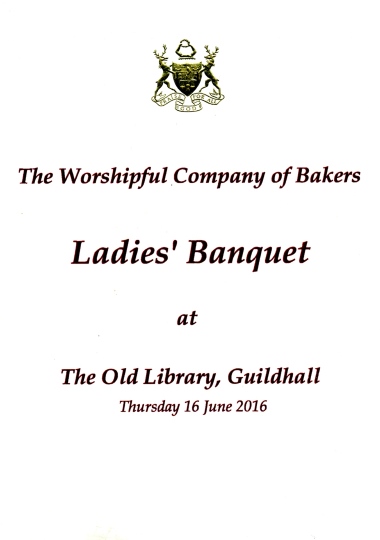
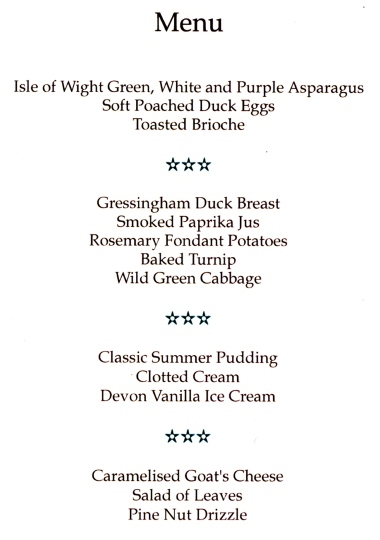
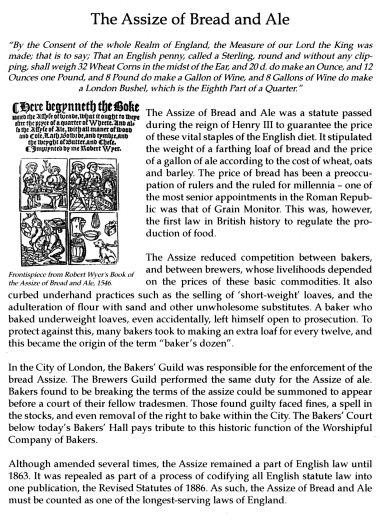
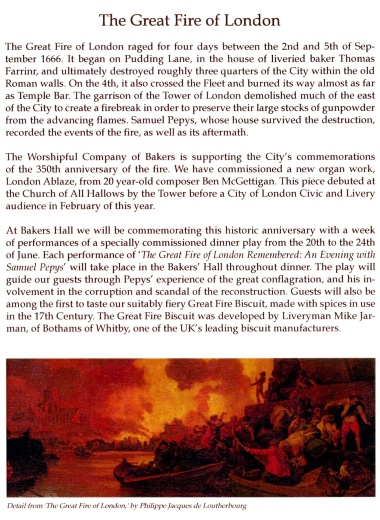

The Assize of Bread and Ale
“By the Consent of the whole Realm of England, the
Measure of our Lord the King was made; that is to say; That an English
penny, called a Sterling, round and without any clipping, shall weigh 32
Wheat Corns in the midst of the Ear and 20 d. do make an Ounce, and 12
Ounces one Pound, and 8 Pound do make a Gallon of Wine, and 8 Gallons of
Wine do make a London Bushel, which is the Eighth Part of a Quarter "
The Assize of Bread and Ale was a statute passed during the reign of
Henry III to guarantee the price
of these vital staples of the English diet. It stipulated the weight of
a farthing loaf of bread and the price of a gallon of ale according to
the cost of wheat, oats and barley. The price of bread has been a
preoccupation of rulers and the ruled for millennia - one of the most
senior appointments in the Roman Republic was that of Grain Monitor.
This was, however, the first law in British history to regulate the
production of food.
The Assize reduced competition between bakers, and between brewers,
whose livelihoods depended on the prices of these basic commodities. It
also curbed underhand practices such as the selling of 'short-weight'
loaves, and the adulteration of flour with sand and other unwholesome
substitutes. A baker who baked underweight loaves, even accidentally,
left himself open to prosecution. To protect against this, many bakers
took to making an extra loaf for every twelve, and this became the
origin of the term ”baker's dozen".
In the City of London, the Bakers' Guild was responsible for the
enforcement of the bread Assize. The Brewers Guild performed the same
duty for the Assize of ale. Bakers found

The Great Fire of London
The Great Fire of London raged for four days between
the 2nd and 5th of September l666. It began on Pudding Lane, in the
house of liveried baker Thomas Farrinr, and ultimately destroyed roughly
three quarters of the City within the old Roman walls. On the 4th, it
also crossed the Fleet and burned its way almost as far as Temple Bar.
The garrison of the Tower of London demolished much of the east of the
City to create a fire-break in order to preserve their large stocks of
gunpowder from the advancing flames. Samuel Pepys, whose house survived
the destruction, recorded the events of the fire, as well as its
aftermath.
The Worshipful Company of Bakers is supporting the City’s commemorations
of the 350th anniversary of the fire. We have commissioned a new organ
work, London Ablaze, from 20 year-old composer Ben McGettigan. This
piece debuted at the Church of All Hallows by the Tower before a City of
London Civic and Livery audience in February of this year.
At Bakers Hall we will be commemorating this historic anniversary with a
week of performances of a specially commissioned dinner play from the
20th to the 24th of June. Each performance of 'The Great Fire of London
Remembered: An Evening with Samuel Pepys’ will take place in the Bakers’
Hall throughout dinner. The play will guide our guests through Pepys’
experience of the great conflagration, and his involvement in the
corruption and scandal of the reconstruction. Guests will also be among
the first to taste our suitably fiery Great Fire Biscuit, made with
spices in use in the 17th Century. The Great Fire Biscuit was developed
by Liveryman Mike Jarman, of Bothams of Whitby, one of the UK's leading
biscuit manufacturers.
The Worshipful Company of Bakers
Of all the Livery Companies in the City of London, few
are older than the Worshipful Company of Bakers, who can prove an
existence back to the middle of the 12th century. The history stretches
uninterrupted to the present day, although perhaps the main claim to
fame is that a Liveryman, Mr Thomas Faryner, is believed to have
(accidentally!) started the Great Fire of London in 1666.
Some would claim a tragic act, but many, may see it as enlightened town
planning. Had the fire not occurred with its truly devastating impact,
it may have been hundreds of years until the City was wholly brick
built, and future generations largely protected from the ravages of
fire. It is extremely unlikely that the one of the most iconic buildings
— St Paul's Cathedral - would have been built without the fire.
The Worshipful Company of Bakers have occupied the current site of
Bakers' Hall since it bought a merchant's house in 1506. The latest Hall
was built in the early 1960s, and in October 2013 the Company celebrates
50 years of the current Hall. The history of the Company reflects that
of the social and economic history of the City of London.
In terms of its control of the trade this was probably at its strongest
during the 14th -17th century, as at that time the Company had the
powers and the wealth to exercise those powers, prosecuting vigorously
any that tried to bring bread into the City and earnestly defending the
price of a loaf baked in the City based on the price of wheat, thereby
maintaining a profit. Although even at this time, probably less than
half the Livery were active bakers.
However, like many other Liveries as London expanded outside the City
walls, transport improved, and the growth of government intervention,
control of the trade slipped. The changes to the Assize Act in the early
1700s removing the price link between wheat and a loaf may have had a
greater impact than the final repeal of the Assize Acts, 100 years
later.
As all Liveries, the company has always pursued a combination of
activities, support of the trade, fraternity, charity, and education,
not forgetting a relationship with the armed forces and the Church, in
our case the church being All Hallows by the Tower.
